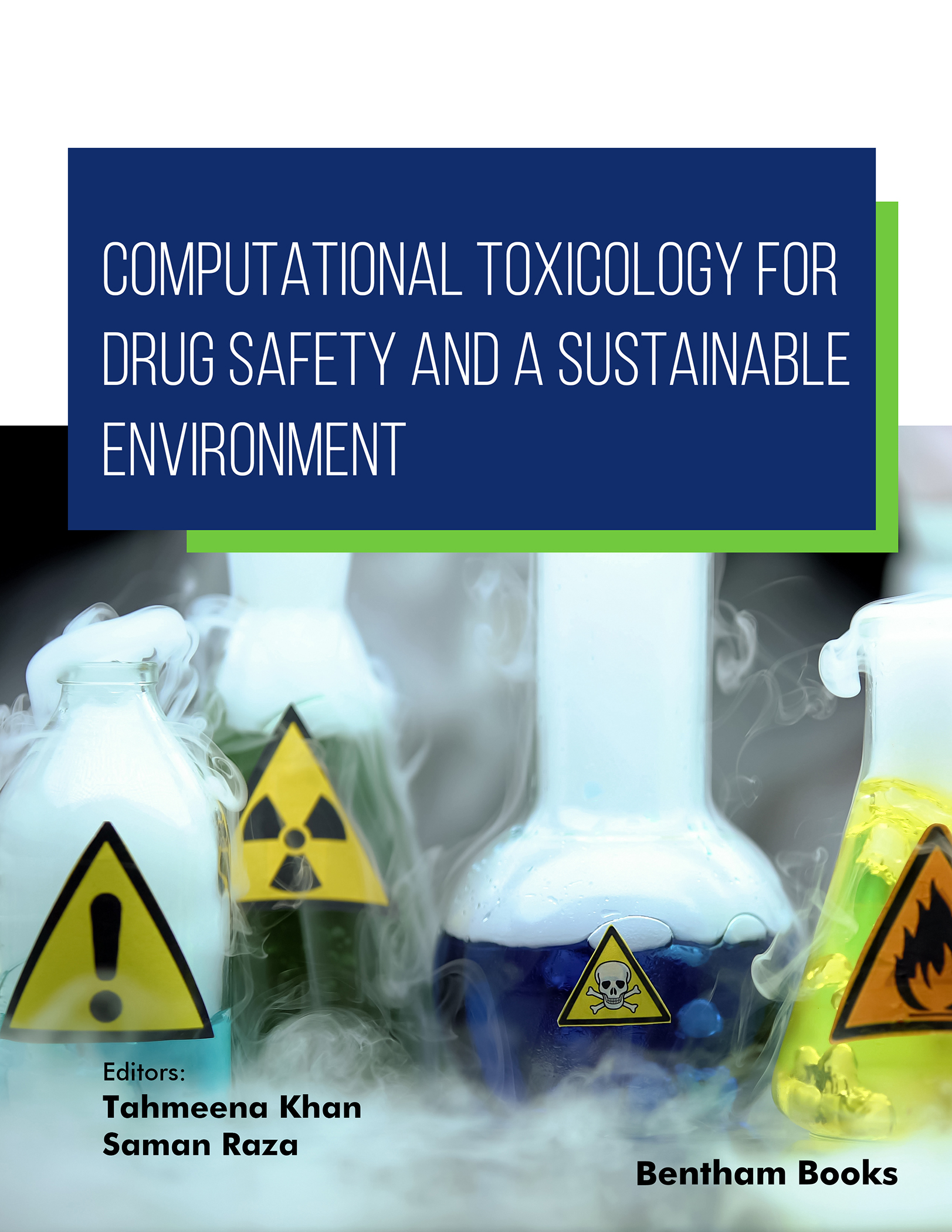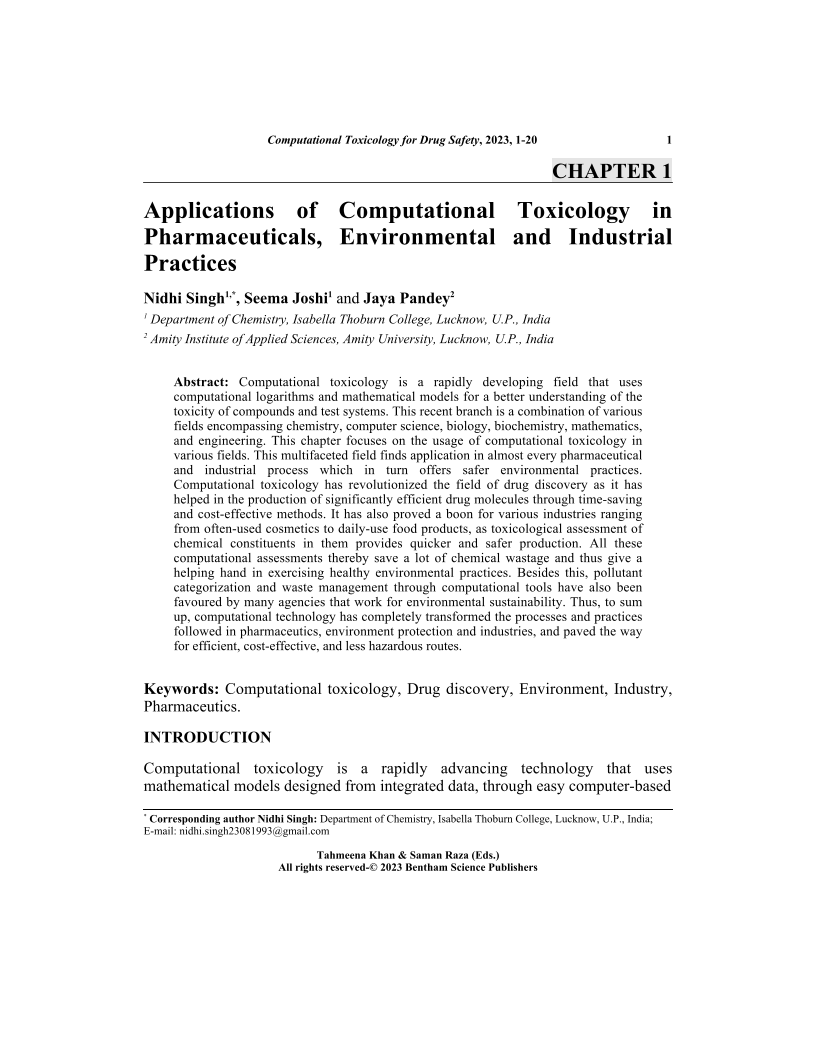Applications of Computational Toxicology in Pharmaceuticals, Environmental and Industrial Practices

- Authors: Nidhi Singh1, Seema Joshi2, Jaya Pandey3
-
View Affiliations Hide Affiliations1 Department of Chemistry, Isabella Thoburn College, Lucknow, U.P., India 2 Department of Chemistry, Isabella Thoburn College, Lucknow, U.P., India 3 Amity Institute of Applied Sciences, Amity University, Lucknow, U.P., India
- Source: Computational Toxicology for Drug Safety and a Sustainable Environment , pp 1-20
- Publication Date: December 2023
- Language: English
Applications of Computational Toxicology in Pharmaceuticals, Environmental and Industrial Practices, Page 1 of 1
< Previous page | Next page > /docserver/preview/fulltext/9789815196986/chap1-1.gif
Computational toxicology is a rapidly developing field that uses computational logarithms and mathematical models for a better understanding of the toxicity of compounds and test systems. This recent branch is a combination of various fields encompassing chemistry, computer science, biology, biochemistry, mathematics, and engineering. This chapter focuses on the usage of computational toxicology in various fields. This multifaceted field finds application in almost every pharmaceutical and industrial process which in turn offers safer environmental practices. Computational toxicology has revolutionized the field of drug discovery as it has helped in the production of significantly efficient drug molecules through time-saving and cost-effective methods. It has also proved a boon for various industries ranging from often-used cosmetics to daily-use food products, as toxicological assessment of chemical constituents in them provides quicker and safer production. All these computational assessments thereby save a lot of chemical wastage and thus give a helping hand in exercising healthy environmental practices. Besides this, pollutant categorization and waste management through computational tools have also been favoured by many agencies that work for environmental sustainability. Thus, to sum up, computational technology has completely transformed the processes and practices followed in pharmaceutics, environment protection and industries, and paved the way for efficient, cost-effective, and less hazardous routes. <br>
-
From This Site
/content/books/9789815196986.chap1dcterms_subject,pub_keyword-contentType:Journal -contentType:Figure -contentType:Table -contentType:SupplementaryData105

